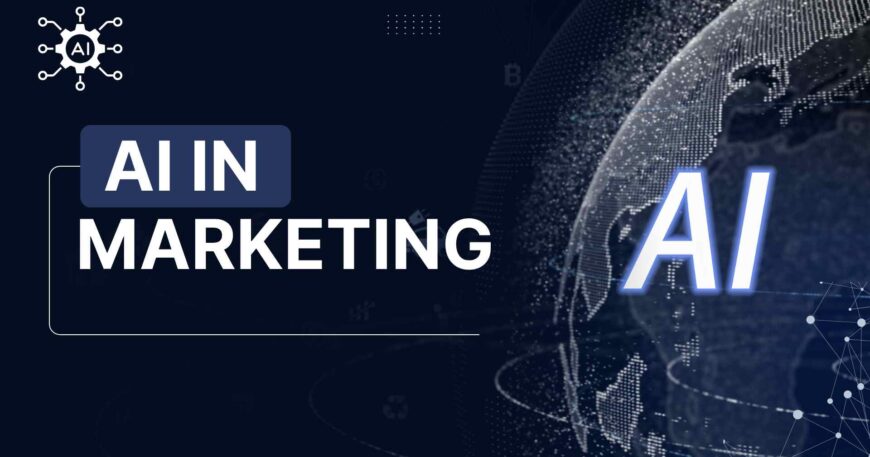Table of Contents
Introduction: Why AI Matters in Marketing
What Is AI in Marketing?
Why AI in Marketing Is Important in 2025
Top Uses of AI in Marketing
Personalized Recommendations
Predictive Analytics
AI-Powered Chatbots
Content Creation
Ad Targeting and Optimization
Email Marketing Automation
Social Listening
Key Benefits of AI in Marketing
Challenges of Using AI in Marketing
Future Trends of AI in Marketing
How Small Businesses Can Use AI in Marketing
Real-World Examples of AI in Marketing
Conclusion: The Future Belongs to AI + Human Creativity
Introduction: Why AI Matters in Marketing
The digital world is changing fast, and one word keeps showing up everywhere—AI, or Artificial Intelligence. You’ve probably seen it in action already. Maybe it’s a chatbot helping you on a website, or those “perfect for you” product suggestions when you’re shopping online.
AI isn’t just tech jargon anymore—it’s becoming a real game-changer in marketing.
But here’s what everyone’s asking: how is AI actually changing the way businesses market, and what does it mean for the future—especially in 2025 and beyond?
Let’s dive in and break it down in simple terms, so you can see how AI is shaping marketing today and how businesses of all sizes can put it to work.
What Is AI in Marketing?
AI in marketing means using artificial intelligence technologies like machine learning, natural language processing, and predictive analytics to improve marketing campaigns. It helps businesses understand customer behavior, automate tasks, and deliver personalized experiences at scale.
Instead of guessing what customers want, marketers can now use AI to:
- Predict buying patterns.
- Deliver the right content at the right time.
- Automate repetitive marketing tasks.
- Analyze massive amounts of data instantly.
In short, AI makes marketing smarter, faster, and more effective.
Why AI in Marketing Matters Today
The digital landscape is overflowing with content, ads, and promotions. Customers see thousands of marketing messages every day. To stand out, businesses need more than just traditional strategies—they need precision and personalization.
Here’s why AI is crucial:
Personalization at Scale – AI tailors messages to each customer, making them feel valued.
Better ROI – Smarter campaigns mean less waste and more results.
Data-Driven Decisions – AI turns raw data into actionable insights.
Faster Campaigns – Automation cuts down on time-consuming tasks.
Enhanced Customer Experience – AI-driven chatbots and recommendations improve satisfaction.
Top Uses of AI in Marketing
AI is no longer futuristic—it’s happening right now. Here are some real-world applications:
1. Personalized Recommendations
Think about Netflix suggesting shows or Amazon recommending products. That’s AI analyzing browsing history, past purchases, and preferences to suggest exactly what you might like.

2. Predictive Analytics
AI predicts customer behavior by studying patterns. For example, it can tell which customers are likely to stop buying from you and when to re-engage them.
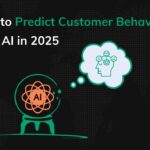
3. AI-Powered Chatbots
Chatbots can handle thousands of customer queries at once, 24/7, providing instant support and freeing up human agents for complex issues.
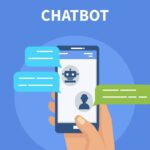
4. Content Creation
Tools like ChatGPT help marketers generate blogs, social media captions, ad copy, and even video scripts—saving time while keeping the content engaging.
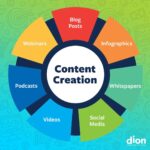
5. Ad Targeting and Optimization
AI ensures ads reach the right audience at the right time, boosting click-through rates and lowering ad spend.

6. Email Marketing Automation
AI analyzes customer interactions and automatically sends personalized emails—like reminders, discounts, or newsletters.
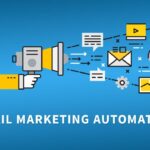
7. Social Listening
AI tools scan social media platforms to understand what customers are saying about your brand, industry trends, or competitors.
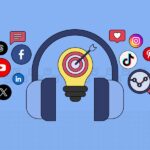
Benefits of AI in Marketing
When used correctly, AI can completely transform how businesses connect with their audience. Let’s look at the biggest benefits:
Personalization – Customers love when brands understand them. AI ensures they see content, products, and offers that match their needs.
Efficiency – No more wasted time on repetitive tasks. AI automates everything from scheduling posts to optimizing ads.
Cost-Effectiveness – Smarter targeting reduces ad spend while increasing results.
Better Customer Insights – AI analyzes customer data quickly and accurately, revealing hidden trends.
Scalability – Whether you have 100 customers or 1 million, AI can handle personalization at every level
Challenges of Using AI in Marketing
Of course, no technology is without challenges. Businesses must be aware of potential issues:
Data Privacy Concerns – Customers want personalization, but they also value their privacy. Brands must use data responsibly.
High Initial Costs – AI tools can be expensive, especially for small businesses just starting out.
Learning Curve – Marketers need training to understand and use AI effectively.
Over-Reliance on Technology – AI is powerful, but human creativity and empathy are still essential.
Future of AI in Marketing (2025 and Beyond)
The future of AI in marketing looks incredibly promising. Here are some trends to watch:
Hyper-Personalization – Marketing will become even more tailored, with campaigns created for individuals instead of large groups.
Voice and Visual Search – Customers will search with their voice or images, and AI will make sure brands show up in those results.
Emotion AI – AI will detect customer emotions through text, voice, and even facial expressions to craft better responses.
AI in Video Marketing – AI will help create, edit, and distribute videos faster than ever.
Integration with AR/VR – Imagine trying a product virtually before buying it—AI will power these immersive experiences.
How Small Businesses Can Use AI in Marketing
Many think AI is only for big companies, but that’s not true. Small businesses can also use affordable AI tools to grow.
- Chatbots for customer service.
- AI-driven email tools like Mailchimp or HubSpot.
- Social media scheduling tools powered by AI insights.
- AI SEO tools to optimize websites and blogs.
- Personalized ad targeting on Facebook, Instagram, and Google.
By starting small, local businesses can enjoy the benefits of AI without huge investments.
Examples of Brands Using AI in Marketing
Coca-Cola – Uses AI to analyze customer data and create personalized ad campaigns.
Sephora – AI-powered chatbots recommend beauty products based on skin type and preferences.
Spotify – Uses AI to create customized playlists based on user mood and listening habits.
Starbucks – AI in its app suggests personalized offers based on past purchases.
These examples show how AI is already shaping brand experiences in powerful ways.
Conclusion: AI Is the Future of Marketing
AI in marketing is no longer optional—it’s essential. From improving personalization and customer experience to cutting costs and boosting efficiency, AI helps brands stay competitive in today’s crowded marketplace.
Yes, challenges like data privacy and costs exist, but the benefits far outweigh them. Businesses that adopt AI early will gain a massive edge over competitors.
The future of marketing belongs to those who combine AI technology with human creativity. Together, they can create campaigns that are smarter, faster, and more impactful than ever before.


